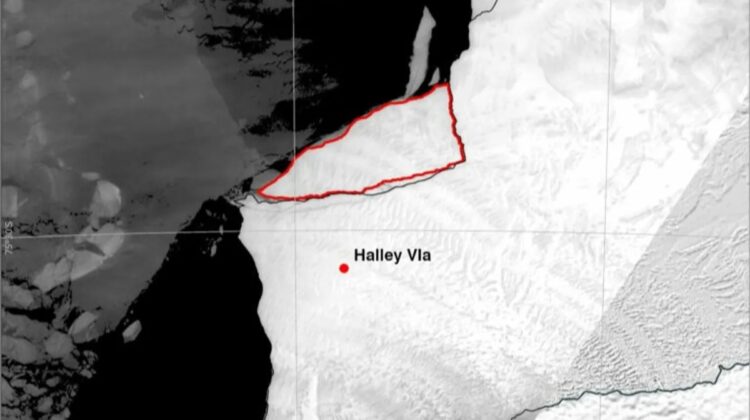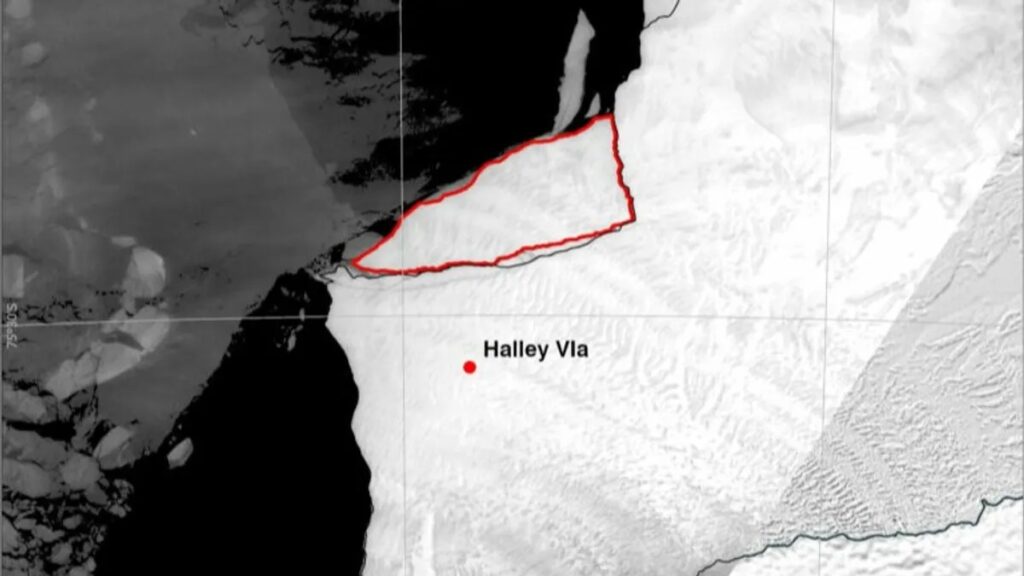
As breakups go, this is a pretty big one.
We’re here to bring you some quite literally breaking news – an iceberg that’s bigger than the city of Las Vegas has broken off the Brunt Ice Shelf in Antarctica. This 380 square-kilometer (147 square-mile) chunk of ice parted ways with the shelf on the morning of May 20, after a crack that first appeared a few weeks ago gradually turned into a 14-kilometer (8.7-mile) -long chasm.
It formed at a right angle to the existing Halloween Crack, appropriately named given that it was discovered on October 31, 2016. Sadly, the new iceberg hasn’t been given a similarly spooky name.

Image credit: British Antarctic Survey
The newly solo ice is set to be officially named “A-83”, though the British Antarctic Survey (BAS), which has been monitoring the break, took to social media to ask people to come up with a slightly more exciting, if unofficial, moniker. Icy McBergFace A-83 is also the third major iceberg to break off the Brunt Ice Shelf in the last four years. An iceberg the size of Greater London calved in January last year, following a “smaller” break nearly the size of Los Angeles two years before.
Thankfully, the BAS had long since moved the previously nearby Halley Research Station, where scientists keep an eye on the ice shelf, after a large crack known as Chasm-1 suddenly woke up from dormancy and began to widen.
Though climate change can affect ice shelves, scientists say this series of breaks isn’t linked
to it – though it might have an impact on the local environment.
“This calving was expected since the appearance of Halloween Crack eight years ago and reduces the total area of the ice shelf to its smallest extent since monitoring began,” said BAS glaciologist (what a job title) Dr. Oliver Marsh in a statement. “Tabular iceberg calving is part of the natural behavior of ice shelves but often causes large changes in ice shelf geometry and can impact local ocean circulation.”
Though not thought to be the result of climate change, Swansea University’s Professor Adrian Luckman still called the series of breaks “concerning.” “Antarctica’s floating ice shelves grow gradually by ice flow and shrink episodically by iceberg calving. The balance between these two processes impacts their ability to hold back ice on land,” Luckman explained. “It is concerning, therefore, that even in this relatively cold sector of Antarctica there have now been three large iceberg calvings in the last 3-4 years.”
It’s hoped, however, that the data from the Brunt Ice Shelf will help scientists understand the calving process in even greater detail and, hopefully, make it easier to predict how ice shelves might change in the future.

Leave a Reply